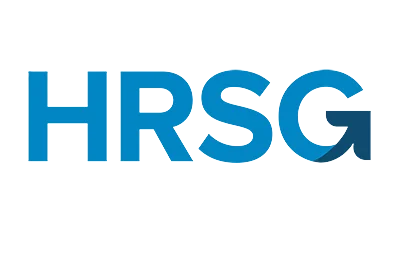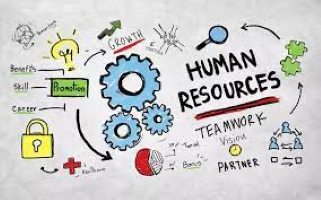The ascent of digital transformation and the growing prevalence of remote work have brought about a substantial transformation in organizational operations, calling for a reorientation of human resources professionals in managing their workforces. As remote teams and dispersed workforces become the customary practice, human resources professionals must modify their strategies and practices to ensure efficient virtual collaboration and sustain employee engagement. In this article, we will delve into the pivotal role of human resources in managing remote teams and distributed workforces, presenting valuable insights and best practices for effectively navigating this new era of work.
Human Resources Adapting Recruitment and Onboarding Processes
One of the first challenges human resources professionals face when managing remote teams and distributed workforces is adapting their recruitment and onboarding processes to accommodate virtual collaboration. This involves leveraging digital tools and platforms for candidate selection, interviews, and assessments, as well as creating a comprehensive virtual onboarding experience for new hires. By embracing digital transformation, human resources professionals can ensure a seamless recruitment and onboarding process, setting the stage for successful remote work.
Fostering Effective Virtual Collaboration
As remote teams and distributed workforces rely heavily on virtual collaboration, human resources professionals must take an active role in promoting effective communication and teamwork. This involves identifying and implementing the right digital tools, such as video conferencing platforms, team messaging apps, and project management software, to facilitate seamless collaboration. Human resources professionals should also provide training and resources to help employees effectively navigate these tools and develop the skills necessary for successful virtual collaboration.
Building a Strong Remote Work Culture
Maintaining a positive and inclusive work culture is essential for remote teams and distributed workforces, as it directly impacts employee engagement, productivity, and retention. Human resources professionals play a critical role in fostering a strong remote work culture by developing and implementing clear policies and guidelines that promote work-life balance, open communication, and mutual respect. Additionally, human resources professionals should encourage virtual team-building activities and social interactions to strengthen relationships and maintain a sense of camaraderie among remote employees.
Supporting Employee Wellbeing and Mental Health
The shift to remote work and distributed workforces has brought unique challenges to employee wellbeing and mental health, as remote employees may struggle with feelings of isolation, burnout, or difficulty maintaining work-life balance. Human resources professionals have a responsibility to support the mental health and wellbeing of their remote teams by providing resources, such as access to mental health services, wellness programs, and flexible work arrangements. Additionally, human resources professionals should foster open communication and encourage employees to share their concerns and challenges, allowing for proactive support and intervention.
Managing Performance and Development
As remote teams and distributed workforces operate outside the traditional office setting, human resources professionals must adapt their performance management and employee development strategies to ensure continued growth and success. This includes implementing effective remote performance management practices, such as setting clear expectations and objectives, providing regular feedback, and leveraging digital tools for performance tracking and evaluation. Human resources professionals should also provide opportunities for remote employees to engage in professional development, such as online training, webinars, and virtual conferences, to support their growth and career advancement.
Navigating Legal and Compliance Issues
Managing remote teams and distributed workforces presents unique legal and compliance challenges, as employees may be located in different jurisdictions with varying labor laws and regulations. Human resources professionals must stay informed about the relevant laws and regulations in each location and ensure that their organization’s policies and practices adhere to these requirements. This includes managing payroll, taxes, benefits, and other compliance-related aspects of remote work, minimizing potential legal risks and complications.
Embracing Digital Transformation
The successful management of remote teams and distributed workforces relies heavily on digital transformation, as organizations must leverage technology to facilitate virtual collaboration, communication, and employee support. Human resources professionals play a crucial role in driving digital transformation within their organizations, identifying and implementing the right tools and solutions to support their remote employees. This involves staying informed about the latest digital trends and innovations, assessing the organization’s unique needs, and advocating for the adoption of technology that can improve remote work processes and outcomes.
Preparing for the Future of Work
As remote work and distributed workforces continue to shape the future of work, human resources professionals must be proactive in anticipating and addressing emerging challenges and opportunities. This involves staying informed about trends and best practices in remote work, engaging in continuous learning and professional development, and regularly reassessing and refining their remote work strategies. By staying agile and adaptable, human resources professionals can ensure their organizations remain competitive and well-prepared for the evolving demands of the digital age.
To sum up, the role of human resources in managing remote teams and distributed workforces is diverse and complex, requiring human resources professionals to adapt their recruitment and onboarding processes, support employee wellbeing, and drive digital transformation. By taking on these responsibilities and creating effective strategies for managing remote work, human resources professionals can guarantee the triumph of their organizations in this new era of virtual collaboration and dispersed workforces. As the work landscape continues to evolve, human resources professionals must remain flexible and resilient, keeping abreast of emerging trends and best practices so they can keep providing business solutions globally. Persistently refining their approach to managing remote teams and distributed workforces.






